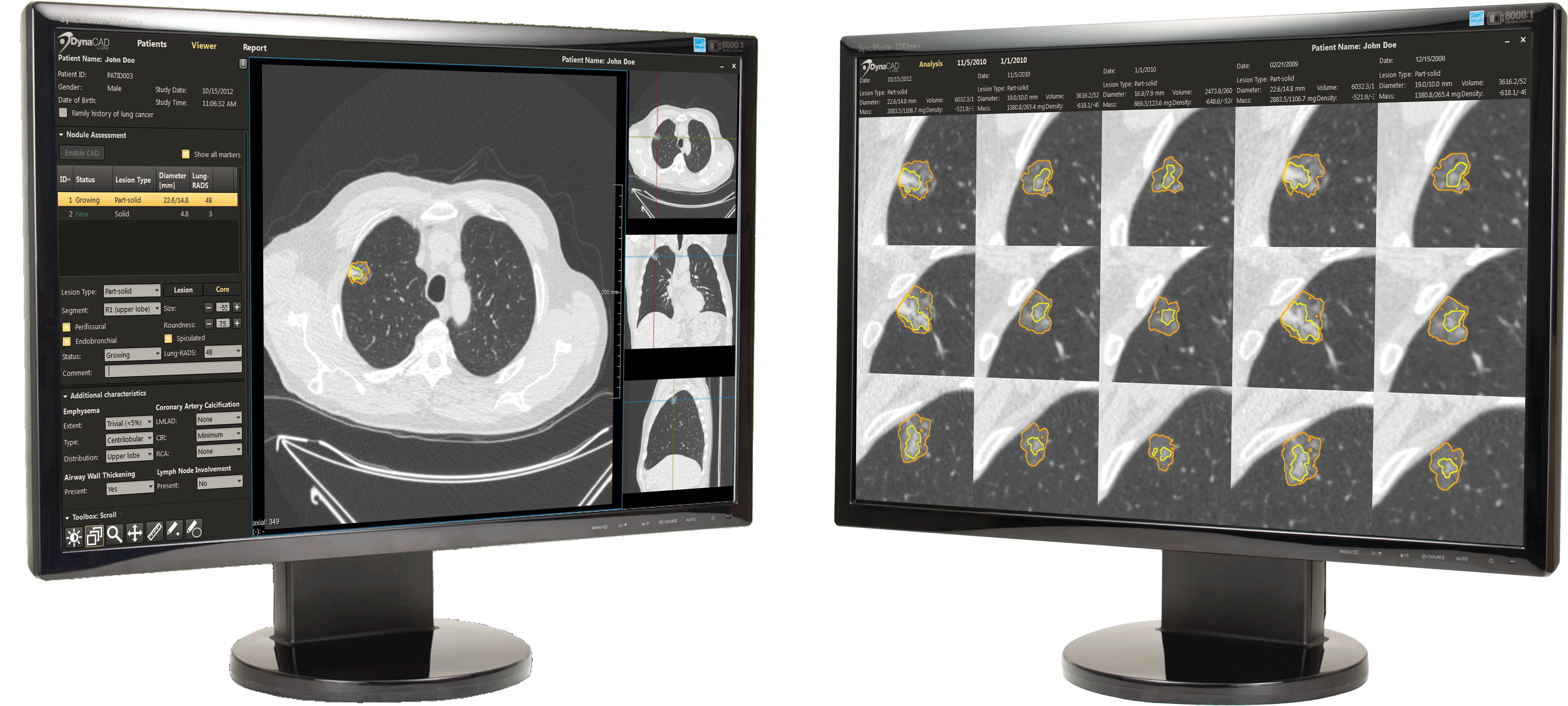
June 30, 2015 - An annual exam using a key imaging technology could spare patients with lung nodules from unnecessary tests and surgery, while identifying the cases where the nodules are likely to become cancerous, according to a new study. Researchers at Icahn School of Medicine at Mount Sinai (ISMMS) published the study online in the journal Radiology.
The study authors found the imaging technology, called low-dose computed tomography (LDCT), to be a safe and effective screening tool to monitor those with nonsolid lung nodules, which in some cases are precursors to cancer. Lung nodules are small tissue masses in the lungs that can be benign or cancerous. They are classified as solid, part solid or nonsolid, based on their appearance on CT, which combines a series of X-ray images taken from different angles and uses computer processing to create cross-sectional images, or slices, of the bones, blood vessels and soft tissues of the body. Nonsolid nodules have become a common finding on CT scans of the chest, and management of them is challenging.
"Nonsolid nodules are caused by inflammation, infection or fibrosis, and in some cases indicate cancer risk," said study co-author Claudia I. Henschke, Ph.D., M.D., clinical professor of radiology, ISMMS. "Our goal is to identify the nodules that require closer investigation and those that do not."
In the new study, Henschke and colleagues analyzed results from 57,496 participants in the International Early Lung Cancer Program (I-ELCAP), a worldwide initiative focused on reducing deaths from lung cancer. The participants underwent baseline and annual repeat screenings, to which the researchers evaluated the prevalence of nonsolid nodules and their effect on long-term outcomes.
In the study, 2,392 baseline LDCT screenings, or 4.2 percent, identified a nonsolid nodule and further analysis of this group led to the diagnosis of 73 cases of cancer. Annual repeat screenings identified a new nonsolid nodule in 485 participants, or 0.7 percent, of which 11 were diagnosed with Stage I cancer. The nonsolid nodule developed a solid component-a warning sign of invasive cancer-in 22 cases prior to treatment.
However, the median transition time from nonsolid to part-solid was more than two years. This suggests that nonsolid nodules of any size can be safely followed with CT at 12-month intervals to assess a potential transition to part-solid. One immediate benefit of the study findings may be a reduction in the overtreatment of nodules, according to study co-author David Yankelevitz, M.D., professor of radiology, Icahn School of Medicine at Mount Sinai.
"Our study shows the importance of annual screening and follow-up in the general population," said Yankelevitz. "This could further reduce unnecessary CT scans, possible biopsies or even surgery for lung cancer."
The study results also provide additional information to help in the shared decision making process between physicians and patients, Yankelevitz said.
"Patients can be assured that annual screening intervals are sufficient," he added. "This is a major step forward for lung cancer screening protocols."
For more information: www.icahn.mssm.edu


 February 16, 2026
February 16, 2026 









